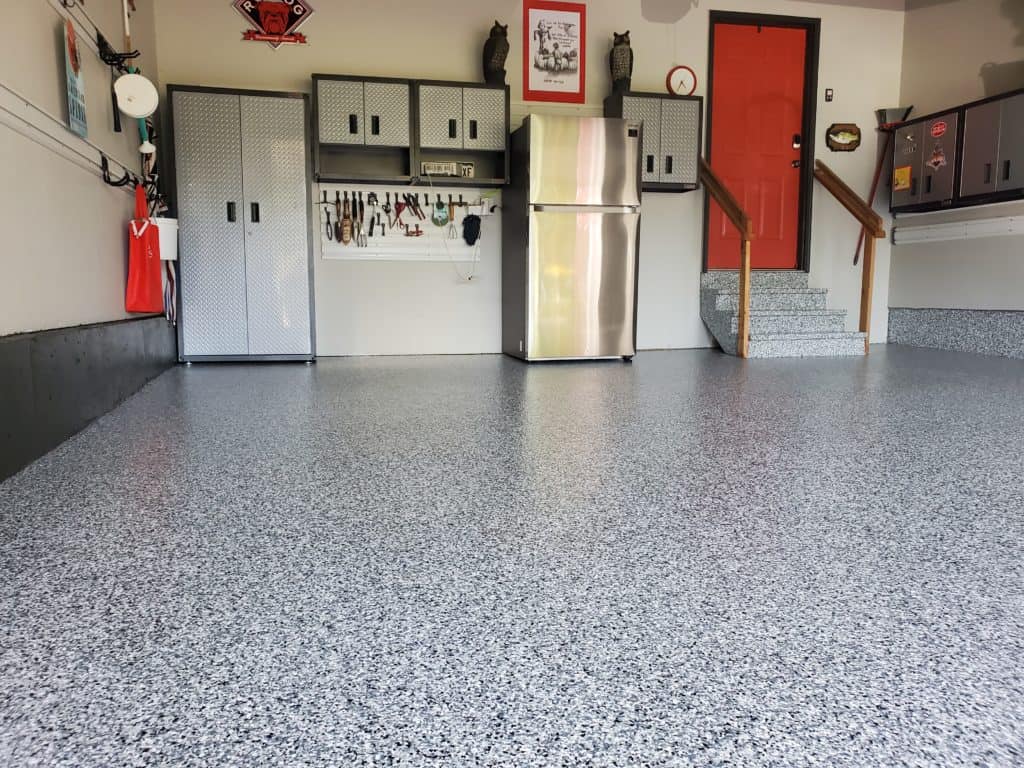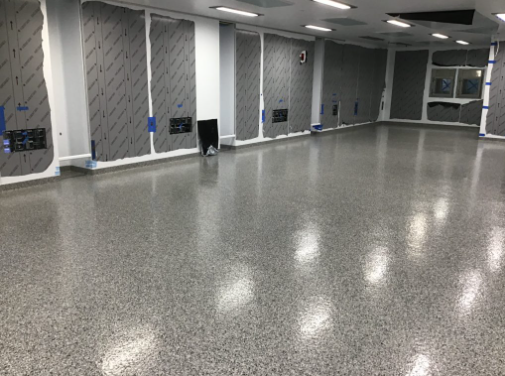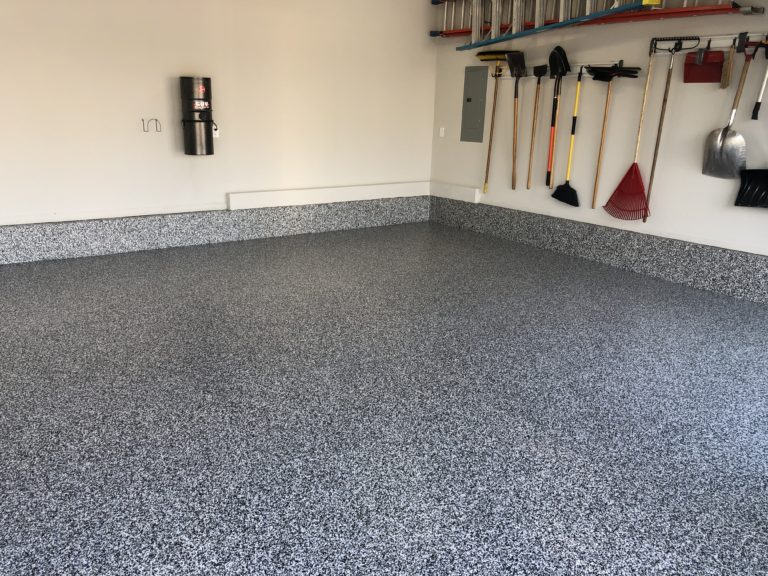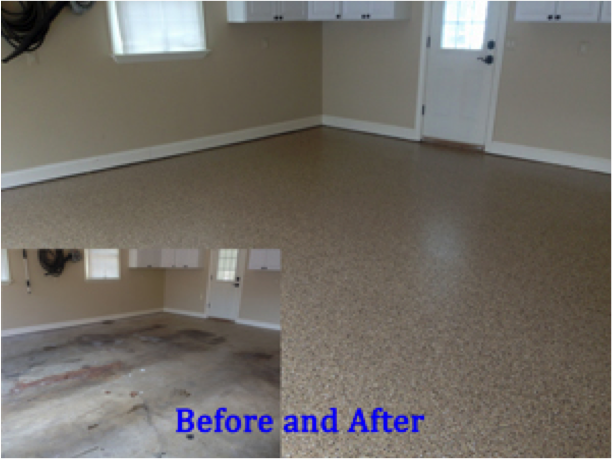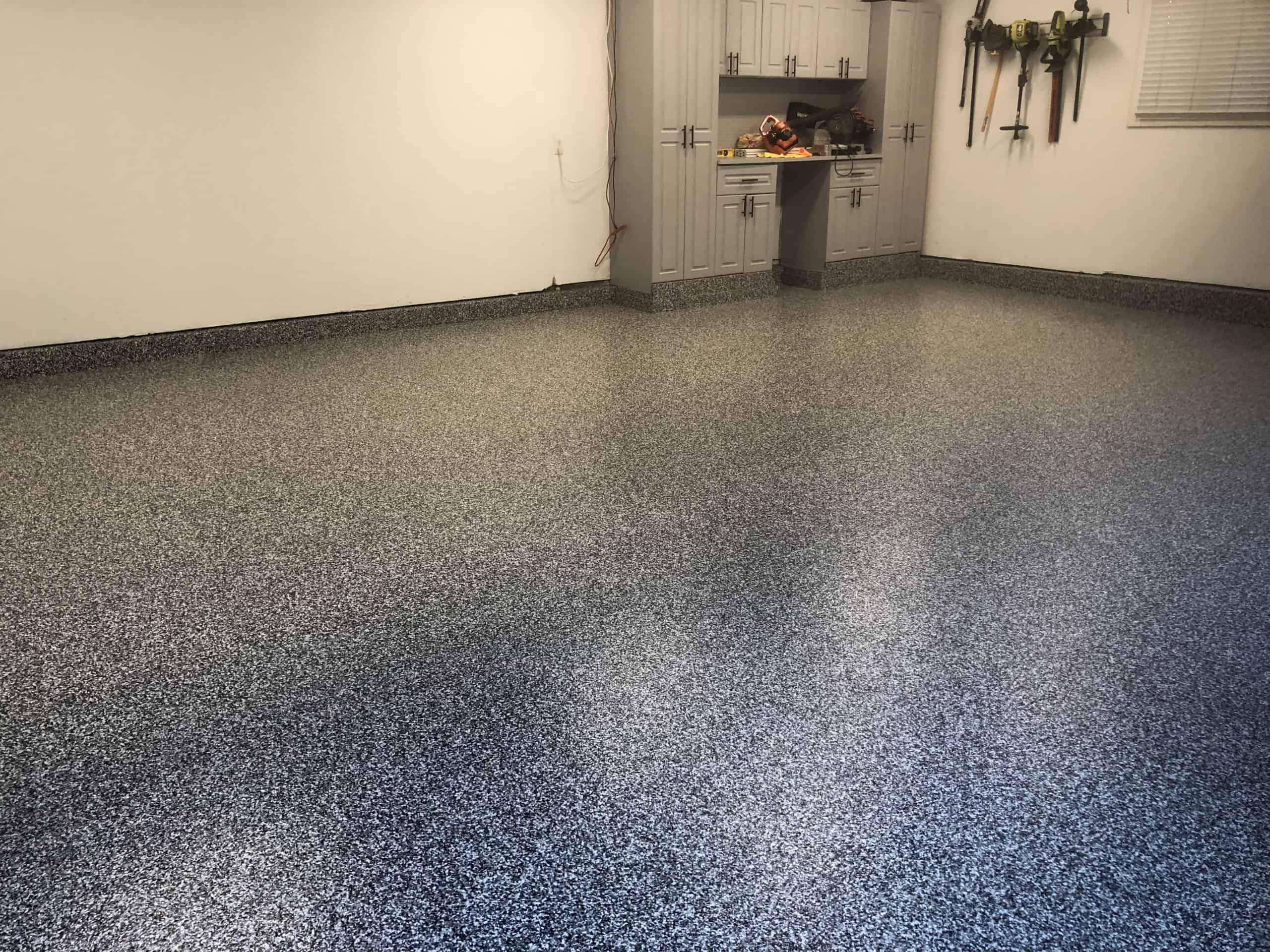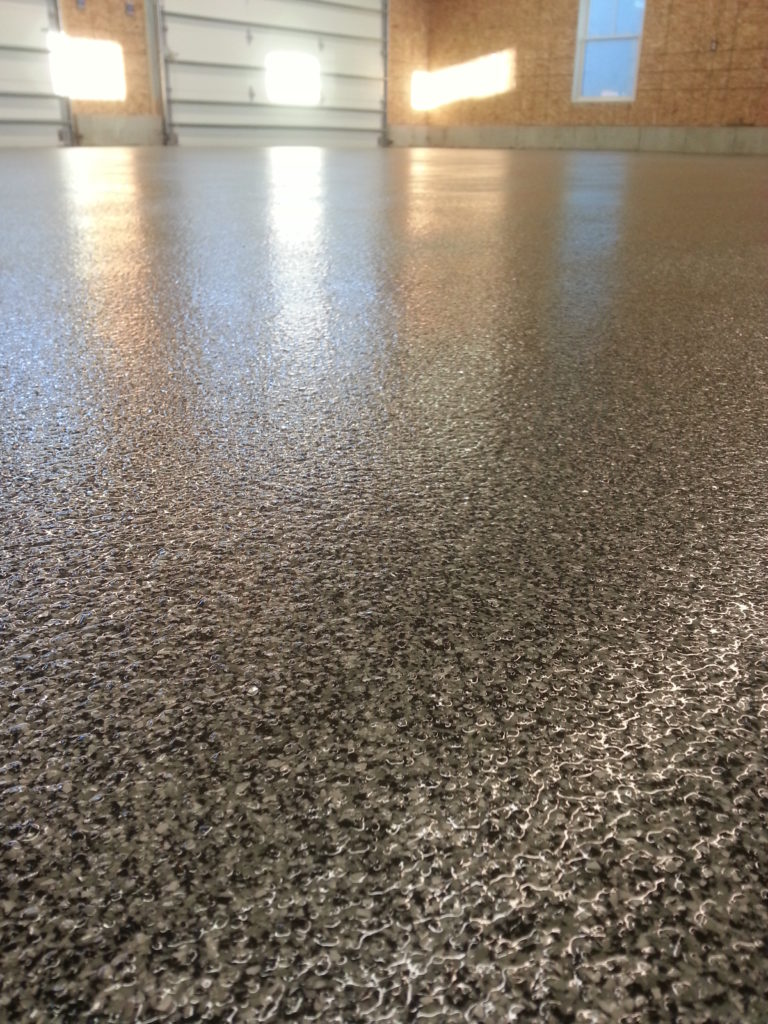Epoxy Floor Coating: What Is It and Why Choose It?
Epoxy floor coating is a popular flooring solution known for its durability, aesthetic appeal, and versatility. If you’re considering upgrading your floors, it’s essential to understand what epoxy floor coating is and why it’s a preferred choice for many residential and commercial spaces.
What is Epoxy Floor Coating?
Epoxy floor coating is a synthetic resin floor system applied over concrete substrates as a form of protection and decoration. This coating comprises two main components: an epoxy resin and a hardener. When these two components are mixed, they chemically react to form a rigid plastic material that is strong, durable, and resistant to degradation.
Durability and Longevity
One of the primary reasons people choose epoxy floor coatings is their remarkable durability. Epoxy floors can withstand heavy traffic, making them ideal for garages, warehouses, and industrial environments. They are resistant to wear and tear, ensuring your floors remain in excellent condition for years. Additionally, epoxy coatings are resistant to chemicals, stains, and spills, which makes them perfect for environments where spills are common, such as kitchens and workshops.
Aesthetic Appeal
Epoxy floor coatings offer a sleek and glossy finish that can significantly enhance the appearance of any space. They come in various colors and patterns, allowing you to customize your floor to match your interior design. Some epoxy coatings can even mimic the look of more expensive materials, like marble or granite, providing a high-end look without the high-end price tag.
Easy Maintenance
Maintaining an epoxy-coated floor is straightforward. The smooth and seamless surface of epoxy floors makes cleaning a breeze, as dirt, dust, and spills can be easily wiped away. Unlike other flooring options that may require special cleaning products or techniques, epoxy floors can be cleaned with a simple mop and mild detergent. This low maintenance requirement is particularly advantageous for busy commercial settings where time and resources for cleaning may be limited.
Safety Features
Epoxy floor coatings can also enhance the safety of your environment. These coatings can be formulated to include anti-slip additives, which provide extra traction and reduce the risk of slips and falls. This is especially important in areas that are prone to becoming wet or oily, such as kitchens, bathrooms, and garages.
Environmental Benefits
Many epoxy floor coatings are low in volatile organic compounds (VOCs), making them an environmentally friendly choice. Low-VOC epoxy coatings reduce the release of harmful chemicals into the air during application and throughout the life of the floor. Additionally, the durability and longevity of epoxy floors mean less frequent replacement and reduced material waste over time.

Factors Influencing the Cost of Epoxy Floor Coating
When planning an epoxy floor coating project, it’s essential to understand the various factors that can influence the overall cost. From the size of the area to the type of epoxy used, several elements play a role in determining the final price tag. Here are some key factors to consider.
Area Size
The size of the area to be coated is one of the most significant factors affecting the cost of epoxy floor coating. Larger areas require more materials and labor, which can drive up the overall expense. Contractors typically charge per square foot, so measuring the total square footage of the space is crucial for obtaining an accurate estimate. Smaller projects may have a higher cost per square foot due to minimum service fees.
Surface Preparation
Proper surface preparation is critical for the success of an epoxy floor coating project. The condition of the existing floor can significantly impact the preparation costs. If the concrete substrate is damaged, cracked, or heavily stained, it may require additional work, such as patching, grinding, or acid etching, to create a suitable surface for the epoxy to adhere to. The more extensive the preparation, the higher the cost.
Type of Epoxy
There are various types of epoxy floor coatings available, each with different properties and price points. Water-based epoxies tend to be more affordable but may not offer the same level of durability and chemical resistance as solvent-based or 100% solid epoxies. High-performance industrial-grade epoxies are typically more expensive but provide superior durability and longevity. Choosing the right type of epoxy for your specific needs will influence the overall cost.
Coating Thickness
The thickness of the epoxy coating can also affect the cost. Thicker coatings require more material and additional application steps, leading to higher expenses. In high-traffic areas or environments where extra protection is needed, thicker coatings are often recommended to ensure the floor’s longevity and durability. However, for residential or light commercial use, a standard thickness may be sufficient and more cost-effective.
Customization and Design
Customization options, such as decorative finishes, colors, patterns, and textures, can add to the cost of an epoxy floor coating project. Metallic epoxy coatings, for example, create a unique, marbled effect but are more labor-intensive and expensive than standard coatings. Similarly, incorporating logos, designs, or anti-slip additives will increase both material and labor costs. The level of customization desired should be carefully considered when budgeting for the project.
Labor and Installation
Labor costs can vary significantly depending on the complexity of the installation and the experience of the contractor. Hiring a professional installer ensures that the epoxy is applied correctly and that the floor will perform as expected. However, this expertise comes at a price. Comparing quotes from multiple contractors and checking references can help you find a balance between cost and quality.
Breaking Down the Costs: Materials, Labor, and Additional Expenses
Epoxy floor coating projects come with a variety of costs, including materials, labor, and additional expenses. Breaking down these costs can help you budget more accurately and understand where your money is going. Here’s a detailed look at each component.
Material Costs
The cost of materials is a significant portion of the overall expense of an epoxy floor coating project. This includes the epoxy resin and hardener, which are typically sold as a kit. The price of these kits can vary depending on the type of epoxy and the coverage area. Basic water-based epoxy kits may start at around $30-$50 per gallon, while high-performance, 100% solid epoxy kits can range from $100 to $150 or more per gallon. Additionally, if you opt for decorative elements like colored flakes, metallic pigments, or quartz sand, these will add to the material costs.
Surface Preparation Costs
Proper surface preparation is crucial for the longevity and performance of the epoxy coating. Preparation costs can include cleaning, degreasing, grinding, patching cracks, and applying a primer. These steps ensure that the epoxy adheres properly to the concrete substrate. Depending on the condition of the existing floor, surface preparation can add anywhere from $1 to $5 per square foot to the overall cost. For heavily damaged or uneven surfaces, more extensive preparation work will be required, increasing the expense.
Labor Costs
Labor costs can vary widely based on the complexity of the project and the experience of the contractor. Professional installation typically ranges from $3 to $12 per square foot. This includes the cost of skilled labor for surface preparation, mixing and applying the epoxy, and finishing touches. The overall labor cost will depend on the size of the area, the number of coats applied, and any custom designs or patterns. It’s essential to get quotes from multiple contractors and ensure they provide a detailed breakdown of labor costs.
Additional Expenses
Several additional expenses can arise during an epoxy floor coating project. These may include:
- Equipment Rental: If specialized equipment is needed for surface preparation or application, such as grinders or industrial vacuums, rental costs can add to the budget.
- Protective Gear: Proper safety equipment, such as respirators, gloves, and goggles, is necessary to protect workers from fumes and chemicals.
- Clean-Up: Disposal of debris and cleaning supplies can also incur costs. Some contractors may include this in their labor fees, while others may charge extra.
- Permits and Fees: Depending on your location, you may need permits or inspections, particularly for commercial installations. These fees vary by region and project scope.
Customization and Design Costs
Adding custom elements to your epoxy floor, such as logos, intricate patterns, or multi-color designs, will increase both material and labor costs. These customizations require additional time and expertise to execute correctly. For example, metallic epoxy coatings, which create a unique, marbled effect, can be more labor-intensive and costly due to the precision required in application. Budgeting for these extras is essential if you desire a customized look.
Maintenance and Long-Term Costs
While epoxy floors are known for their durability and low maintenance, it’s important to consider long-term costs. Over time, you may need to reapply a topcoat or perform minor repairs to maintain the floor’s appearance and performance. The initial investment in a high-quality epoxy coating can reduce the need for frequent repairs and replacements, saving money in the long run. Factoring in these potential future expenses can provide a more comprehensive understanding of the total cost of ownership.
Comparing Different Types of Epoxy Coatings and Their Prices
Epoxy floor coatings come in various types, each offering distinct properties and price points. Selecting the right type for your project involves understanding the differences between these coatings and their respective costs. Here, we compare the most common types of epoxy coatings and what you can expect to pay for each.
Water-Based Epoxy
Water-based epoxy is one of the most affordable options available. This type of epoxy is easy to apply and has a lower volatile organic compound (VOC) content, making it more environmentally friendly and safer for indoor use. However, water-based epoxy is less durable and not as resistant to chemicals and abrasion as other types. Prices typically range from $30 to $50 per gallon, making it a cost-effective choice for residential applications with light to moderate traffic.
Solvent-Based Epoxy
Solvent-based epoxy coatings are more durable than water-based options and provide a harder, more resistant finish. These coatings have higher VOC levels, which require adequate ventilation during application. Solvent-based epoxies are suitable for areas with heavier traffic and more demanding conditions. The cost for solvent-based epoxy usually falls between $40 and $60 per gallon, offering a balance between affordability and performance.
100% Solid Epoxy
100% solid epoxy coatings are the most durable and long-lasting of all epoxy types. They contain no solvents, meaning the entire volume of the product remains after curing. This results in a thicker, more robust coating that can withstand heavy traffic, chemicals, and impact. These high-performance coatings are ideal for industrial settings, garages, and commercial spaces. Prices for 100% solid epoxy range from $100 to $150 or more per gallon. While they are more expensive, their superior durability often justifies the higher cost.
Metallic Epoxy
Metallic epoxy coatings are a premium option that creates a unique, decorative finish. These coatings contain metallic pigments that give the floor a shimmering, marbled appearance. The application process is more complex and requires a skilled installer to achieve the desired effect. Metallic epoxy is often used in showrooms, high-end residential spaces, and commercial areas where aesthetics are a priority. Due to their complexity and materials, metallic epoxy coatings can cost between $5 and $15 per square foot, including labor.
Epoxy Terrazzo
Epoxy terrazzo is a decorative flooring system that incorporates chips of marble, quartz, granite, or glass in the epoxy. This type of coating creates a highly durable and visually appealing floor that is ideal for public spaces like airports, schools, and hospitals. Epoxy terrazzo is labor-intensive and requires specialized skills to install, which is reflected in its higher cost. Prices for epoxy terrazzo typically range from $10 to $30 per square foot.
Self-Leveling Epoxy
Self-leveling epoxy is designed to create a smooth, even surface over uneven or damaged floors. It flows and spreads out evenly to fill in cracks and imperfections, resulting in a seamless finish. This type of epoxy is commonly used in commercial, industrial, and residential settings where a flat, smooth surface is essential. The cost for self-leveling epoxy can vary, but it generally falls between $2 and $5 per square foot for materials alone, with additional labor costs depending on the complexity of the installation.
DIY vs. Professional Installation: Cost Considerations and Pros & Cons
Choosing between a DIY epoxy floor coating project and hiring a professional can significantly impact the overall cost and quality of the installation. Both options have their pros and cons, and understanding these can help you decide which route to take for your flooring project.
Cost of Materials
When opting for a DIY project, you can purchase materials directly from retailers or online suppliers. DIY kits for water-based epoxy can be quite affordable, starting at around $50 per gallon. However, high-quality materials such as 100% solid epoxy can cost upwards of $150 per gallon. Professionals often have access to better quality materials at bulk prices, potentially reducing the overall material cost when hired for a project. While DIY may seem cheaper upfront, the difference in material quality can affect the long-term durability of the floor.
Labor Costs
Labor is a significant factor in the cost of epoxy floor coating. DIY projects eliminate labor costs since you will be doing the work yourself. However, this comes at the expense of your time and effort. On the other hand, professional installation typically ranges from $3 to $12 per square foot, depending on the project’s complexity and the contractor’s experience. Hiring a professional can save you time and ensure a higher quality finish, but it will increase the overall cost of the project.
Quality of Installation
The quality of the installation is where professional services often have a significant advantage. Professionals have the experience and expertise to handle surface preparation, mixing, and applying the epoxy correctly. They can ensure that the coating is applied evenly and without defects. DIY installations, especially by beginners, can suffer from issues like improper mixing, uneven application, or inadequate surface preparation, leading to peeling, bubbling, or premature wear.
Equipment and Tools
A DIY epoxy floor coating project requires various tools and equipment, such as grinders, rollers, squeegees, and safety gear. While some of these tools may be available for rent, the costs can add up. Professionals come equipped with all necessary tools and equipment, ensuring the job is done efficiently and correctly. The upfront cost of purchasing or renting equipment for a DIY project can sometimes offset the savings from not hiring a professional.
Time and Effort
DIY projects require a significant investment of your time and effort. Surface preparation, application, and curing can take several days, during which the area will be out of use. If you have limited time or are inexperienced with such projects, this can be a daunting task. Hiring a professional allows you to avoid this hassle, as they can complete the job more quickly and with less disruption to your daily routine.
Warranty and Support
Many professional epoxy floor coating companies offer warranties on their work, providing peace of mind that any issues will be addressed at no additional cost. DIY projects typically do not come with a warranty, meaning you will be responsible for any repairs or touch-ups. The support and guarantee provided by professionals can be a valuable aspect, ensuring long-term satisfaction with your floor.
Long-Term Value: Is Epoxy Floor Coating Worth the Investment?
Investing in an epoxy floor coating can be a significant decision, especially when considering the costs involved. However, evaluating the long-term value of this investment can help determine if it is worth the initial expense. Here, we explore the benefits and potential savings associated with epoxy floor coatings to help you make an informed decision.
Durability and Longevity
One of the most compelling reasons to invest in epoxy floor coating is its durability and longevity. Epoxy floors are designed to withstand heavy traffic, impact, and exposure to chemicals and abrasions. Unlike other flooring options that may wear out or require frequent replacement, a well-installed epoxy floor can last for many years with minimal maintenance. This durability translates into long-term savings, as you won’t need to replace or repair the floor as often as with other materials.
Low Maintenance
Epoxy floor coatings are incredibly easy to maintain, which adds to their long-term value. The seamless, non-porous surface resists dirt, dust, and spills, making cleaning a simple task. Regular sweeping and occasional mopping are usually sufficient to keep the floor looking pristine. This low maintenance requirement reduces the time and money spent on cleaning products and labor, making epoxy floors a cost-effective choice over time.
Enhanced Aesthetic Appeal
Epoxy floor coatings offer a high-gloss finish that can enhance the appearance of any space. They come in a variety of colors, patterns, and finishes, allowing for customization to suit your specific design preferences. This aesthetic appeal can add value to your property, making it more attractive to potential buyers or tenants. In commercial settings, a clean and polished floor can also create a positive impression on customers and clients.
Improved Safety
Safety is another important factor contributing to the long-term value of epoxy floor coatings. These coatings can be customized with anti-slip additives to improve traction and reduce the risk of slips and falls. This is particularly beneficial in environments where safety is a priority, such as garages, workshops, and industrial spaces. By preventing accidents and potential liability claims, epoxy floors can provide peace of mind and financial protection.
Resistance to Damage
Epoxy floor coatings are highly resistant to a variety of damaging factors, including chemicals, stains, moisture, and impact. This resistance ensures that the floor maintains its integrity and appearance even under harsh conditions. For industrial and commercial spaces, this can mean fewer interruptions due to floor repairs or replacements, leading to increased productivity and cost savings.
Cost-Effectiveness
While the initial cost of epoxy floor coating may seem high, the long-term benefits often outweigh the expense. The extended lifespan, low maintenance requirements, and resistance to damage all contribute to the overall cost-effectiveness of epoxy floors. When compared to other flooring options that may require frequent repairs, replacements, or intensive cleaning, epoxy floors prove to be a more economical choice in the long run.
The Cost Of Garage Floor Coatings Per Square Foot
Is It Worth It To Epoxy Garage Floor? Garage Floor Epoxy
Myths about Garage Floor Coatings
How Much Does It Cost To Epoxy Garage Floor?
Price Intel: How Much Does a Commercial Epoxy Floor Cost?
Epoxy Flooring Pricing in Michigan Armor Tough Coatings
Related Posts:

